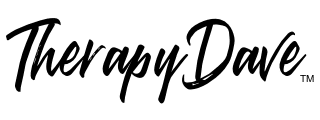Every relationship has its unique dynamics, but when undiagnosed ADHD (Attention-Deficit/Hyperactivity Disorder) is part of the equation, both partners may experience challenges and gifts they never expected. As a Licensed Clinical Social Worker and Certified Gottman Therapist, I’ve worked with many couples navigating this journey together. While undiagnosed ADHD can contribute to relationship stress, it can also bring unique strengths and opportunities for deeper understanding.
The ADHD Brain in Love: Understanding Different Ways of Being
Adult ADHD often looks different from the stereotypical image of a hyperactive child. In relationships, it manifests in ways that can both challenge and enrich the partnership. Understanding these differences is key to building a stronger connection.
Common Experiences for the Partner with ADHD:
- Processing conversations and emotions differently, sometimes leading to deeper, more authentic discussions
- Having an energetic, creative approach to problem-solving and daily life
- Bringing spontaneity and excitement to the relationship
- Experiencing intense focus on activities or conversations that spark interest
- Sometimes struggling with traditional time management and organization
- Having a unique way of showing love that might not fit conventional expectations
I used to think I was just bad at relationships, but learning about ADHD helped me understand that my brain works differently – not wrongly. Now my partner and I can appreciate each other’s unique ways of showing love.”
– Client Story
Common Experiences for the Non-ADHD Partner:
- Appreciating their partner’s creativity and passionate approach to life
- Sometimes feeling overwhelmed by different approaches to tasks and time
- Learning to understand and value different ways of showing care
- Developing new perspectives on structure and flexibility
- Building skills in clear, direct communication
- Discovering the benefits of thinking outside traditional relationship “rules”
How ADHD Can Impact Your Relationship’s Foundation
Using the Gottman Method’s “Sound Relationship House” framework, let’s explore how ADHD can both challenge and strengthen different aspects of your relationship:
Building Trust and Commitment
While different approaches to tasks and time can create tension, they also offer opportunities for deeper understanding and acceptance. For example, an ADHD partner might forget an anniversary date but create an incredibly thoughtful, creative celebration on a random Tuesday.
Creating Shared Meaning
ADHD can bring unique perspectives that enrich your shared life:
- Finding joy in spontaneous adventures
- Developing creative solutions to daily challenges
- Building deeper empathy through understanding different ways of thinking
- Creating unique rituals that honor both partners’ needs
Managing Conflict
Every couple faces challenges, but ADHD can add unique dimensions to conflict resolution:
- Direct example: During arguments, an ADHD partner might need to move around or take breaks to process emotions effectively
- Success story: “We learned that my partner processes better when we walk and talk. Now our ‘difficult conversations’ happen during evening strolls, and they’re much more productive.”
Strategies for Growing Together: What Actually Works
1. Recognize and Celebrate Differences
Instead of trying to “fix” ADHD traits, successful couples learn to:
- Appreciate the spontaneity and creativity ADHD can bring
- Value different approaches to tasks and problem-solving
- Recognize that both partners’ ways of thinking have validity
- Find humor in their differences when appropriate
2. Develop Custom Solutions
Rather than forcing traditional approaches, create strategies that work for your unique partnership:
- Use voice notes instead of written reminders if that works better
- Create flexible routines that allow for both structure and spontaneity
- Establish “body-double” working sessions where partners work independently but together
- Design organization systems that make sense for both partners
3. Build on ADHD Strengths
Many ADHD traits can enhance your relationship:
- Hyperfocus can lead to incredibly meaningful deep conversations
- Creative problem-solving can help navigate challenges in unique ways
- Spontaneity can keep the relationship fresh and exciting
- Emotional intensity can foster deep emotional connections
4. Practice Emotional Understanding
Using Gottman Method techniques adapted for ADHD:
- Have shorter, more frequent check-ins rather than long discussions
- Use movement or activities during important conversations
- Recognize and appreciate different ways of showing love
- Create “timeout” signals that either partner can use when overwhelmed
Real Stories of Success
When we first realized ADHD was part of our relationship, I worried it would always be a struggle. But working with a therapist helped us see how my partner’s ADHD actually brings incredible gifts to our marriage. Their creativity and spontaneity have made our life so much richer, and learning to communicate in our own way has brought us closer than ever.”
– Couple in Therapy
Moving Forward Together
Remember that ADHD is simply a different way of experiencing and interacting with the world. While it can present challenges, it also brings unique strengths and opportunities for growth. With understanding, acceptance, and the right support, couples can build strong, fulfilling relationships that celebrate both partners’ ways of being.
Ready to Start Your Journey?
Whether you’re discovering the possibility of ADHD in your relationship or looking to strengthen your connection, I’m here to help. Together, we can develop strategies that honor both partners’ needs while building a stronger, more connected partnership.

